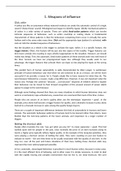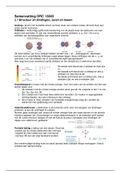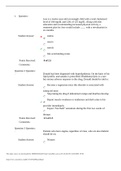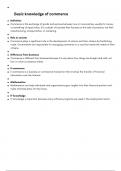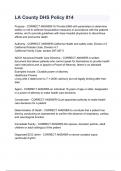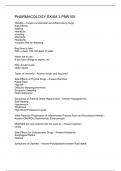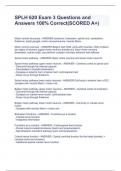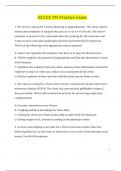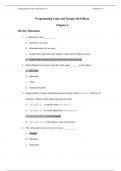Samenvatting
Summary Social influence
- Instelling
- Rijksuniversiteit Groningen (RuG)
Dit is een volledige en duidelijke samenvatting van het boek 'Influence: Science and Practice - International Edition (5th edition). De samenvatting geeft een duidelijk overzicht van de verschillende beïnvloedingsstrategieën en is een goed hulpmiddel voor het studeren voor het tentamen.
[Meer zien]
